One thousand lies and one thousand reasons to protest
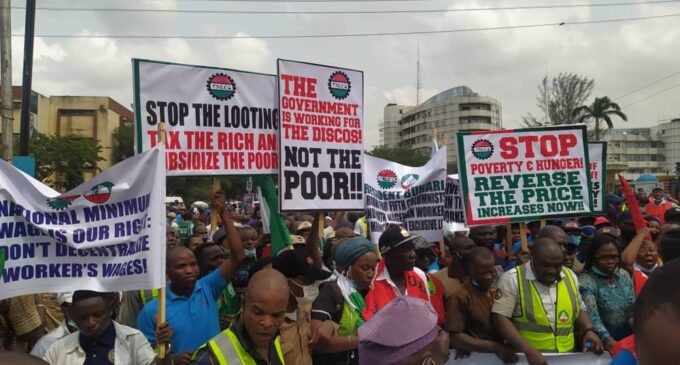
BY OMOLE IBUKUN
A few days ago, after assessing how much Nigerians were mobilising to protest the increment in the pump price of fuel, the federal government announced through the minister of finance, Zainab Ahmed, that the plans to remove fuel subsidy have been postponed until further notice. This announcement which was made at a meeting at the national assembly will mean an amendment to the 2022 budget and the petroleum industry act. While Zainab Ahmed made the announcement expressing that the government heard the cries of Nigerians, the senate president, Ahmed Lawan, was much concerned about asking the organised labour to shelve the January 27 planned protests which shows that this was a concession made out of fear by the government.
As if on cue, the leadership of the Nigerian Labour Congress called a Zoom meeting of its national executive council and called off the protest with a national directive without reaching out to its rank and file members for proper democratic discussions. While NLC seems to have fallen for the subsidy removal suspension announcement, the National Bar Association president, Olumide Akpata, rightly saw that the retreat by the government was not because they heard the cries of the people like they claimed, but because of what a backlash could mean for the government for the 2023 elections. This position was further confirmed when President Buhari claimed that he had deferred the increment for 18 months when he’d be done with this regime. The Afenifere got it clearer when they asserted that the federal government reversed the subsidy removal because it was afraid of the resolve of the people to fight the increase in pump price.
The truth on the ground is that on the day the FG decided to suspend the subsidy removal, there was already artificial fuel scarcity on the streets of Abuja. Features like black market kegs and fuel station queues had reemerged. The technical reason seems to be that until the PIA and the 2022 budget have been fixed, the federal government might not be able to do more than recommend and moderate prices as of February. This leaves price control as a grey area. This means artificial increments, which the FG seems to be comfortable with as a ‘regulator’ in the electricity sector, will kick in for the petrol pump price. While there are promises by the government implying that the petroleum industry act and the 2022 budget will be touched up to accommodate their new decision, it seems unprecedented and therefore improbable that the federal government would go through all of that just to keep a promise to the Nigerian people or the Nigerian workers.
The PIA which was already signed into law as of August 2021 and was supposed to take effect by February 2022 will have to go back to the national assembly to be amended if such artificial increments will be avoided. According to the minister of state for petroleum resources, Timipre Sylva, while describing the next steps: “It is likely to involve an amendment of the PIA to extend the time. I always do not want to preempt what time-frame the national assembly will allow, but definitely, at this moment, fuel subsidy removal is not on the card”. The body language is clear.
Such amendment is a ‘likelihood’ and the timeframe to get it cannot be clearly stated. This means that we are going back to the days of the government shifting blames on the oil marketers as if oil marketers were the ones we voted into power to administer the affairs of the country. In essence, this is just a promise that the federal government can decide to not keep, as usual. In fact, the federal government just told a lie, and Yorubas will say “if a lie has gone for twenty years, the truth will catch up with it in one day”.
This is a major issue that organised labour should have considered before calling off the strike. This issue is that the government does not respect agreements it has freely signed even with trade unions. For example, there was a renegotiation of the 2009 ASUU-federal government agreement which was due in 2012 and which has been the longest and most protracted negotiation because of the insincerity of the government with negotiations. To date, the federal government is yet to honour the 2017 and 2020 memorandum of action (MoA) it signed with the lecturer’s union as part of the renegotiation of the 2009 agreement the FG failed to honour. Rather than honour the agreement, representatives of the Government are busy spreading the propaganda that the ASUU is not a union.
Another example is the case of the doctors’ union, Nigerian Association of Resident Doctors (NARD) which called off a 64-day old strike based on a memorandum of agreement with the federal government that informed the suspension of the strike by the doctors, on the basis that the federal government would withdraw the court case against the union and pay the doctors’ salaries and entitlements. Instead, the federal government failed to honour this agreement with the union and has even gone as far as trying to legislate it into law that the doctors’ union and the health workers’ unions generally should not be able to go on strike again, and has supported that with cheap propaganda like citing the Hippocratic Oath. The federal government is a perpetual liar.
Let’s not forget that the September 28, 2020, strike that was called off by NLC was on the basis of a promise to not increase fuel prices and electricity tariffs. That promise was obviously not fulfilled and that’s why we are where we are now despite the fact that a joint committee was instituted with the organised labour to look into all of the issues. In fact, the plan of the FG was to also remove electricity subsidy this month despite the fact that there was an understanding in September 2020 that electricity tariff increment would stop. The same government did not just betray all the promises made to end police brutality during the #EndSARS protests, it went as far as actually brutalising protesters that came out to commemorate one-year remembrance of the Lekki massacre that happened during the #EndSARS protests. They lie all the time!
Negotiating with the federal government of Nigeria is like negotiating with terrorists – they are that unpredictable, shameless and irresponsible. It is best to not negotiate with terrorists. Fela was not being too radical when he sang “No agreement today, no agreement tomorrow“. How can one negotiate with those who claim not to have funds to build new refineries or not to be able to raise the funds to revamp public refineries yet can invest public money into private refineries? How can you trust people who won’t pay meagre entitlements of doctors (who are very essential workers) yet would allocate a huge chunk of the budget to their own salaries, allowances and emoluments? Even John. F Kennedy who is touted as a great negotiator once said before the Cold War: “We cannot negotiate with people who say what’s mine is mine, and what’s yours is negotiable”. The best thing to do is to get your demands met before you call off your actions. The best thing to do is to get what’s yours!
To understand how empty this recent promise is, the announcement did not touch on the most relevant issues to the masses but focused on subsidy removal. Our problem is not much about subsidy removal, but on the surface, our problem is about fuel price increments, and fundamentally it is about building publicly funded and democratically managed refineries. The announcements from the federal government to suspend the subsidy removal did not give much thought to these two major issues. It did not address the problem of artificial fuel scarcity and price increments. It did not speak much about public refineries being revamped.
Jodi Picoult once said: “When you want something so bad, you tell yourself a thousand lies”. Let’s forget all of the many literal thousand lies of the FG for a minute and ask; Why did the organised labour leadership call off the strike then? They were waiting for a reason to not actually go on strike. The aim of the strike declaration was just to sound tough to get whatever they wanted for themselves in the labour leadership. It was all bluff! They just wanted to act out for their personal interests. They wanted a reason to not have to confront the government so bad that they told themselves a thousand lies with that announcement from the government.
Do they not know all of these facts about the lies of the government? Of course, they do, but I’m going to assume they do not know that the FG is a perpetually shameless liar. I’m going to assume that the same labour leaders have not once accused the FG of lying themselves. In spite of all of these assumptions, are there no other reasons to protest?
Between 2018 and 2020 alone, statistics say 21.4% of the population experienced hunger. Many states in the country are yet to implement the outdated N30,000 minimum wage. Nigeria remains the third most terrorised country in the world following only Iraq and Afghanistan, and the most terrorised country in Africa despite the fact that Libya and Somalia are countries in Africa. Only 62% of Nigerians have access to electricity, and if the percentage does not do justice to that fact, 85 million Nigerians do not have access to grid electricity. All of these are issues that concern all Nigerians including organised workers. Is insecurity not a reason to protest? Are electricity tariff and estimated billing for darkness not a reason to protest?
Asides from these general issues, there are many other local and specific issues like the environmental issues in the Niger Delta, the self-determination issues, the unending police brutality (especially of peaceful protesters and journalists), kidnappings and ritual killings (especially of women and girls), increment in fees of public universities to the tune of millions of naira, etc. Even though this article was meant to use one thousand reasons to protest figuratively, if we count issues that can cause protests in saner climes but are thriving in Nigeria one by one, we might actually count above one thousand!
This is why only a few people were surprised when the organised labour leadership called off the strike action. In September 2020 when they did the same thing, it was shown that the masses did not need the organised labour leadership to move when #EndSARS protests started in October 2020. Even the workers they claim to organise do not need them anymore, because they no longer represent the workers’ interests and most of the workers had hope in the #EndSARS protests more than they ever relied on labour leadership.
This is why Nigerians must not regard the calling off of the NLC strike as the calling off of the protests for our welfare as Nigerians and for justice. We must rely on ourselves and our collective will and intelligence to resist all of the hardship that this government is about to impose on us, or else we will wait until 2023 and start wishing for Buhari to come back! This means that it will only get worse if we do not protest because we have many reasons to protest and no reason to trust the liars in power.
Omole writes from Abuja and can be contacted on 09060277591
Views expressed by contributors are strictly personal and not of TheCable.








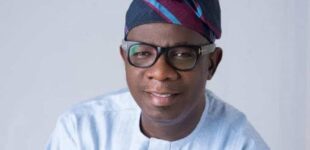
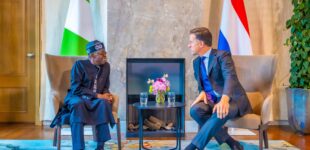



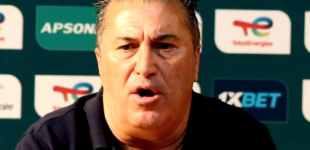
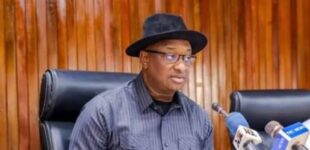

There are no comments at the moment, do you want to add one?
Write a comment